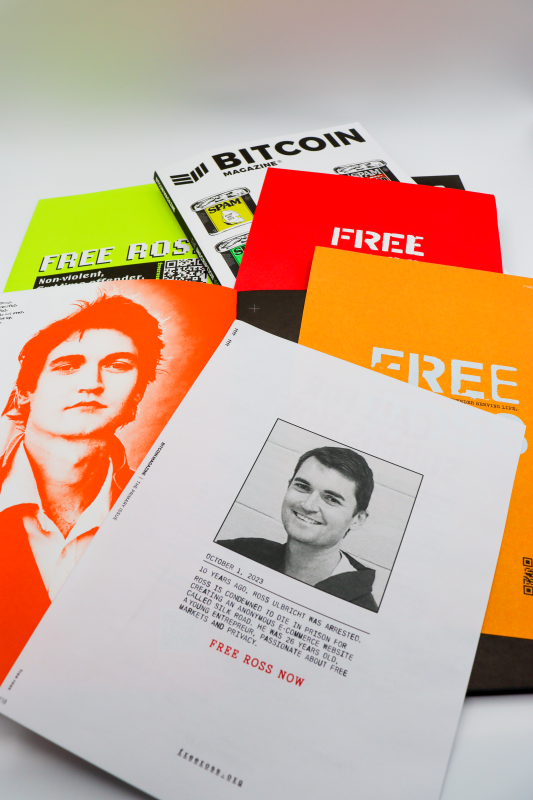Bitcoin pioneer Ross Ulbricht deserves a second chance at freedom

✨ Exactly 9 years ago today, #Bitcoin Pioneer Ross Ulbricht sentenced to life in prison
This week, President Trump promised to pardon him.
The shocking story of his UNFAIR TRAIL and why he deserves a chance at FREEDOM. Thread 🌟 pic.twitter.com/eMOQAVxFMP
— Bitcoin Historian (@pete_rizzo_) May 29, 2024
Nine years ago, Ross Ulbricht, the mastermind behind Silk Road, the first major Bitcoin marketplace, was sentenced to life in prison without parole. This week, former President Donald Trump announced he would commute Ulbricht’s sentence, reigniting debate about the fairness of the trial and the severity of the sentence.
Ross Ulbricht was just 27 years old when he launched Silk Road in 2011, a pioneering online marketplace where users could buy and sell anything consensually. Driven by libertarian ideals and vision to end the war on drugs and stop government taxation, Ulbricht’s platform quickly became popular, especially for transactions involving Bitcoin.
By 2013, as the value of Bitcoin soared, Silk Road became a hotbed for federal law enforcement. In October of that year, Ulbricht was arrested at the San Francisco Public Library. His charges included money laundering, computer hacking and drug trafficking conspiracy.
The legal journey that followed was full of irregularities. Ulbricht’s family raised $1 million for bail, but a judge denied their request and placed him in solitary confinement for six weeks. He had no prior offenses. The FBI’s method of finding Silk Road servers without a warrant also raised serious legal problems.
Many experts have expressed concerns about the broader implications of Ulbricht’s case. The precedent of making website owners responsible for the actions of their users threatened to stifle innovation and hinder the creation of platforms like eBay, Craigslist, or Amazon, as well as peer-to-peer marketplaces built on top of Bitcoin.
Despite these concerns, prosecutors aggressively pursued Ulbricht and sentenced him to a double life sentence and 40 years in prison, with no possibility of parole.
This harsh punishment contrasts sharply with the sentences given to major Silk Road drug dealers such as Cornelis Jan Slomp, who was sentenced to just 10 years in prison for making more than 10,000 transactions totaling 385,000 bitcoins.
Moreover, Ulbricht’s trial was characterized by questionable tactics. Prosecutors presented unindicted criminal charges to the jury, including murder-for-hire plot, charges that were dismissed in 2018. Adding to the controversy, two DEA agents involved in the investigation were found guilty of stealing funds and obstructing justice. It emerged only after Ulbricht’s sentencing.
Throughout the trial, Ulbricht was severely limited in his defense. He was banned from calling witnesses and giving evidence of tampering and corruption. This lack of due process led some law enforcement officials to describe the trial as a “sober house.”
Ulbricht’s story has since garnered significant support, especially within the Bitcoin community. Notable figures such as Fox News correspondent Lisa Kennedy have publicly defended Ulbricht’s release, arguing that he was merely facilitating a transaction that the individual could legally conduct under other circumstances.

In 2021, Ulbricht’s message reached a wider audience when he was invited to speak at a Bitcoin conference in Miami, but this led to another solitary confinement. His mother, Lyn Ulbricht, was his staunch advocate and she campaigned tirelessly for his freedom through the Free Ross Ulbricht organization.
Ulbricht’s potential path to freedom received new hope in May 2023 when presidential candidate Robert F. Kennedy Jr. promised to review his sentence. In response, Republican candidate Vivek Ramaswamy also promised to release Ulbricht if elected. Last week, Trump joined this chorus, pledging to pardon Ulbricht on his first day in office.
As Ulbricht’s case draws renewed attention, many argue that his harsh sentence and the irregularities of his trial warrant a second chance. The prospect of a pardon raises hopes that justice may finally be served, not only for Ulbricht and Bitcoin, but also for the fairness and due process principles of the legal system.



